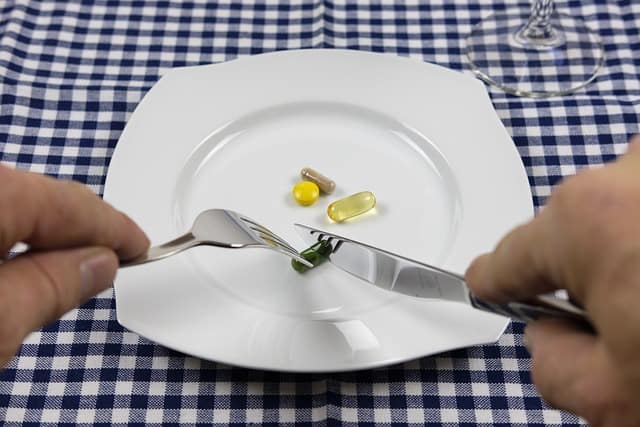Are you a golfer looking to improve your game and prevent hip discomfort on the course? Whether you’re a beginner or a seasoned pro, taking care of your hips is crucial for maintaining performance and preventing injuries. In this blog post, we’ll explore some effective strategies to help alleviate hip discomfort so you can swing with ease and confidence. Let’s tee off into the world of injury prevention for golfers.
Warm-Up and Stretch

Don’t forget to focus on specific stretches that target the hips, such as hip flexor stretches, hamstring stretches, and glute stretches. Some people who are very fond of playing golf purchase a launch monitor. GC3 Launch Monitor is one of the best launch monitors in the market. These targeted stretches can help alleviate tension in the hip area and improve overall mobility when swinging the club.
Strength Training
Strength training is a crucial element in injury prevention for golfers. By incorporating exercises that target the muscles surrounding the hips, you can improve stability and reduce discomfort during your swing. Focus on building strength in your glutes, hamstrings, and core to enhance overall performance on the course. Exercises like squats, lunges, and deadlifts are effective in developing lower body strength, which is essential for generating power in your swing. Incorporating resistance bands or weights into your routine can further challenge your muscles and help prevent injuries. Remember to maintain proper form while performing these exercises to avoid straining your muscles or joints.
Proper Swing Mechanics
Achieving proper swing mechanics is essential for golfers looking to prevent hip discomfort and improve their game. Focus on your posture – maintain a straight spine and engage your core muscles to support your movements. This will help distribute the force evenly throughout your body. Pay attention to the position of your hips during the swing. Rotate them smoothly as you follow through with the motion, avoiding any jerky or unnatural movements that could strain this area. Additionally, ensure that your grip on the club is firm but not overly tight, allowing for a fluid and controlled swing.
Rotate Your Hips

This will allow for a smoother movement and less stress on your joints. Practicing hip mobility exercises off the course can also enhance flexibility and range of motion, making it easier to rotate during swings without straining muscles or ligaments. Incorporating these injury prevention strategies into your golf routine can help alleviate hip discomfort and improve your overall performance on the course. Remember, taking care of your body is just as important as perfecting your swing. By warming up properly, incorporating strength training exercises, focusing on proper swing mechanics, and consciously rotating your hips during each shot, you can minimize the risk of hip injuries and enjoy a pain-free game of golf for years to come. So, next time you hit the green, keep these tips in mind to stay at the top of your game.



 Let’s talk about it, like in general. We’re sure you’ve heard it a lot. The reality is that, when done correctly and safely, intermittent fasting can be a healthy and efficient way to lose weight and reduce the risk of certain diseases such as diabetes. A study from 2012 found that intermittent fasting was more beneficial than traditional dietary approaches. Even deeper, if you take a closer look at the research, you’ll find that it’s not just about weight loss. Intermittent fasting can help reduce inflammation, improve digestion, and even slow down aging.
Let’s talk about it, like in general. We’re sure you’ve heard it a lot. The reality is that, when done correctly and safely, intermittent fasting can be a healthy and efficient way to lose weight and reduce the risk of certain diseases such as diabetes. A study from 2012 found that intermittent fasting was more beneficial than traditional dietary approaches. Even deeper, if you take a closer look at the research, you’ll find that it’s not just about weight loss. Intermittent fasting can help reduce inflammation, improve digestion, and even slow down aging.


 When choosing an appetite suppressant, there are several factors to consider. First and foremost, you must talk to your doctor or a qualified healthcare professional to determine if an appetite suppressant is
When choosing an appetite suppressant, there are several factors to consider. First and foremost, you must talk to your doctor or a qualified healthcare professional to determine if an appetite suppressant is 


 Mindfulness is the practice of being aware and present at the moment. Taking a few moments each day to be mindful can help reduce stress, improve concentration, and aid in relaxation. Try meditating for five minutes each morning or going for a leisurely walk focusing solely on your surroundings. By making these slight changes in diet, exercise, and lifestyle, you can start to see improvements in your health. With a bit of effort and dedication, you can get on the path to feeling healthier and happier.
Mindfulness is the practice of being aware and present at the moment. Taking a few moments each day to be mindful can help reduce stress, improve concentration, and aid in relaxation. Try meditating for five minutes each morning or going for a leisurely walk focusing solely on your surroundings. By making these slight changes in diet, exercise, and lifestyle, you can start to see improvements in your health. With a bit of effort and dedication, you can get on the path to feeling healthier and happier.
 One simple way to promote healthy teeth and gums is by eating crunchy fruits and vegetables. This includes foods like apples, carrots, and celery. These fruits and vegetables help clean your teeth as you eat them. They also contain water which helps keep your mouth hydrated. In addition, they contain fiber which helps remove plaque from your teeth. So, the next time you are looking for a snack, reach for some crunchy fruits and vegetables instead of sugary snacks. Your teeth will thank you!
One simple way to promote healthy teeth and gums is by eating crunchy fruits and vegetables. This includes foods like apples, carrots, and celery. These fruits and vegetables help clean your teeth as you eat them. They also contain water which helps keep your mouth hydrated. In addition, they contain fiber which helps remove plaque from your teeth. So, the next time you are looking for a snack, reach for some crunchy fruits and vegetables instead of sugary snacks. Your teeth will thank you!


 If you are experiencing dry eyes, then use artificial tears as needed. You can purchase artificial tears or lubricating eye drops at any local pharmacy. They come in various formulations, so you must find the one that works best for your specific needs. If there aren’t any additives in the lubricating eye drop, then this means that the eye drop will be more effective in keeping your eyes moist. Make sure to use artificial tears as needed and if the condition persists, then make an appointment with your doctor.
If you are experiencing dry eyes, then use artificial tears as needed. You can purchase artificial tears or lubricating eye drops at any local pharmacy. They come in various formulations, so you must find the one that works best for your specific needs. If there aren’t any additives in the lubricating eye drop, then this means that the eye drop will be more effective in keeping your eyes moist. Make sure to use artificial tears as needed and if the condition persists, then make an appointment with your doctor.